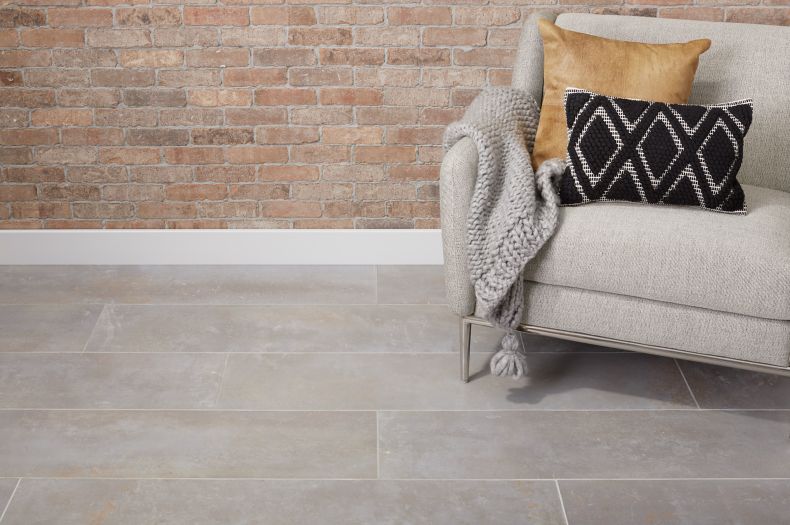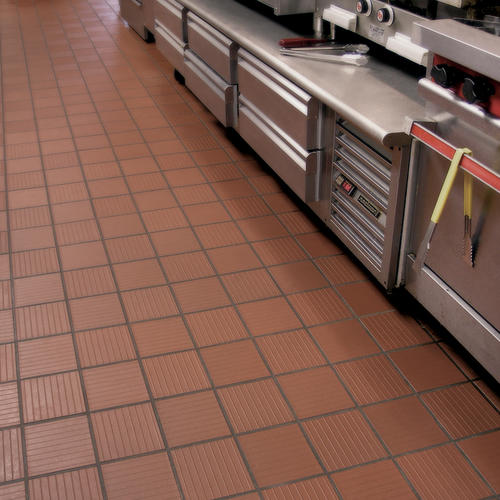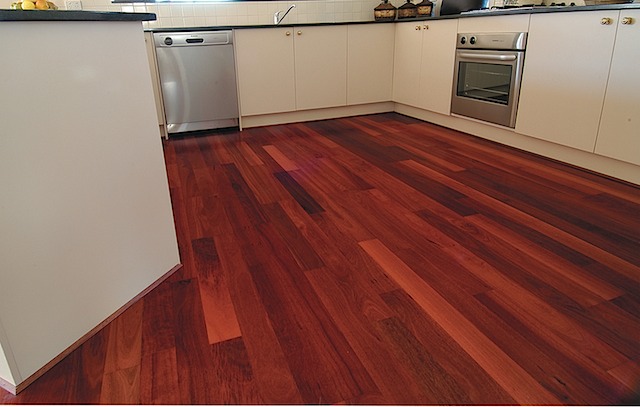
Material and structure: they are made of natural clay minerals processed under extreme heat. They are usually produced in the shape of 0.5 to 3/4 inch-thick square or rectangle or other polygon-shaped tiles. The surface of the tiles is glazed in order to seal the pores on the surface.
Finishing texture: while they come in different shapes, sizes, colors, and patterns, many of them replicate natural stones’ look. Along with natural stone, they give the hardest feeling when you walk on. The finishing texture may range from matte to extremely shiny.
Durability: with 100+ years life expectancy, this is one of the most durable types of flooring.
Specific advantage: it is pretty easy to clean and maintain as it is dent and scratch resistance and almost impossible to get stained. Glazed tiles are also resistant to odor and dirt. Ceramic tiles are also water and fire resistance which makes them a good choice for bathrooms, laundry rooms, kitchen, and basement. Being easy-to-maintain and clean, they are also a very popular choice for commercial and industrial environments.
Installation: Ceramic tiles should be installed on completely flat, even sub-floor. The sub-floor can either be plywood or concrete. The tiles basically get glued to the sub-floor by proper mortar and then they should be grouted.
Weaknesses and limitation: Their biggest drawback for Canadians is definitely the extremely cold feeling under your feet in the winter! Ceramic tile is not a good option for exterior applications, especially in cold climates with harsh freezing winters. Although it is considered water resistance, still its water absorption rate is higher than natural stone. So, with the first frost, it will most likely crack.
Cost: It usually may cost as low as 0.5$ per sqft or cost up to 10$ per sqft.

